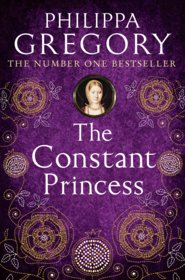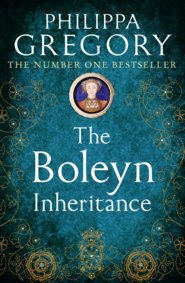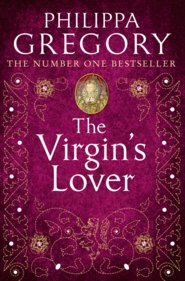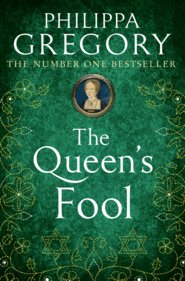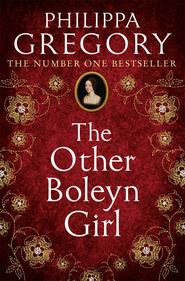По всем вопросам обращайтесь на: info@litportal.ru
(©) 2003-2025.
✖
The Complete Wideacre Trilogy: Wideacre, The Favoured Child, Meridon
Настройки чтения
Размер шрифта
Высота строк
Поля
And when Papa broached the idea of a school, Mama turned white and reached a hand for her only son. But Harry’s blue eyes sparkled and he said he wanted to go. Against Papa’s certainty that Harry would need a better education than his own to deal with an encroaching and slippery world, and Harry’s quiet but effective determination to leave, Mama was helpless. All August, while Harry was ill again, Mama, Nurse, the housekeeper and every one of the four upstairs maids dashed around all day in a frenzy of preparation for the eleven-year-old hero’s departure for school.
Papa and I avoided the worst of the fuss. In any case, there were the long days we had to spend on the open downland pastures collecting the sheep to separate lambs from ewes for slaughter. Harry, too, remained secluded in library or parlour choosing books to take to school with him, and scanning his newly purchased Latin and Greek grammars.
‘You cannot want to go, Harry!’ I said incredulously.
‘Whyever not?’ he said, frowning at the breeze that had blown in with me as I flung open the library door.
‘To leave Wideacre!’ I said and then stopped. Once again Harry’s world of words defeated me. If he did not know that nothing outside Wideacre could match the smell of Wideacre’s summer wind, or that a handful of Wideacre earth was worth an acre of any other land, then I had no way to tell him. We did not see the same sights.
We did not speak the same language. We did not share even the similarity of family resemblance. Harry took after my father in colouring, with his bright blond curls and his wide blue, honest eyes. From Mama he had inherited her delicate bone structure and the sweetness of her smile. Her smiles were rare enough, but Harry was a merry-faced golden cherub. All the petting and indulgence he had from Mama had been unable to spoil his sunny nature – and his smiling good looks reflected his sweet and loving spirit.
Beside him I was a throwback to our Norman ancestors and the founders of the line. Foxy-coloured, like those greedy and dangerous men who came in the train of the Norman conqueror and took one look at the lovely land of Wideacre and fought and cheated and lied until they got it. From those ancestors I had my chestnut hair, but my hazel-green eyes were all my own. No portrait in the gallery showed a set of eyes slantingly placed above high cheekbones like mine.
‘She’s a changeling,’ Mama once said in despair.
‘She’s her own pattern,’ my blond papa said consolingly. ‘Maybe she’ll grow into good looks.’
But Harry’s golden curls could not last for ever. His head was cropped for his first wig as part of the preparation for school. Mama wept as the radiant springs fell all around him on the floor, but Harry’s eyes were bright with excitement and pride as Papa’s own wigmaker fitted a little bob-tailed wig on his head – as shorn as a lamb. Mama wept for his curls; she wept as she packed his linen; she wept as she packed a great box of sweetmeats to sustain her baby in the hard outside world. The week before his departure, she was in one continual flood of tears, which even Harry thought wearisome, and Papa and I found pressing business on the far side of the estate from breakfast to dinner.
When he finally departed – like a young lord in the family carriage with his bags strapped on the back, two outriders and Papa himself riding alongside for company for the first stage – Mama shut herself in her parlour for the afternoon. To my credit, I managed a few tears and I took good care to tell no one they were not for Harry’s departure. My father had bought me my first grown-up mount to console me for the loss of my brother. She was an exquisite mare, Bella, with a coat the colour of my own chestnut hair, a black mane and tail and a stripe like starlight down her nose. But I would not be allowed to try her paces till Papa came home, and he would be gone overnight. My tears flowed easily enough, but they were all for me and white-nosed Bella. Once Harry turned the corner of the drive and was out of sight, I scarcely thought of him again.
Not so Mama. She spent long solitary hours in her front parlour fiddling with little pieces of sewing, sorting embroidery silks or tapestry wool into the ranges of shades; arranging flowers picked for her by me or one of the gardeners, or tinkling little tunes on the piano – absorbed by the little time-wasting tedious skills of a lady’s life. But, unconsciously, the little tune would stop and her hands would fall into her lap, and she would gaze out of the window to the gentle shoulder of the green downs, seeing their rippled loveliness, yet all the time seeing the bright face of Harry, her only son. Then she would sigh, very softly, and drop her head to her work, or take up the tune again.
The sunlight, so joyous in the garden and in the woods, seemed to beat cruelly on the pretty pastel colours of the ladies’ parlour. It bleached the pink out of the carpets and the gold out of Mama’s hair, and the lines into her face. While she faded in pale silence indoors, my father and I rode over the length and breadth of Wideacre land, chatting to the tenant farmers, checking the progress of their crops against those we farmed ourselves, watching the flow of the River Fenny over our turning millwheel, until it seemed that the whole world was ours and I might take a proprietary interest in every living thing that – one way or another – belonged to us.
Not a baby was born in our village but I knew of it and generally the child took one of our names: Harold or Harry for my father and brother, Beatrice for my mama and me. When one of our tenants died, we concerned ourselves in the packing and the leaving of their family, if they were going, or the succession of the oldest son and the co-operation of his brothers if they were staying. My father and I knew every blade of grass on our lands, from the weeds on the lazy Dells’ farm (they would be looking for a new tenancy when their lease ran out) to the white-painted fence posts on the spick-and-span Home Farm we farmed ourselves.
Small wonder I was a little empress riding over our land on our horses, with Father – the greatest landlord for a hundred miles around – riding before me and nodding to our people who dropped a curtsy or pulled their forelocks as we passed.
Poor Harry missed all this. Not for him the pleasure of seeing our land under every daily light and in every season. The ploughed fields ringed with white hoarfrost and crunchy as fudge, or the swaying corn in the beating heat of summer. While I rode like a lord at a lord’s side, Harry moped at school and sent sorrowful letters home to his mother, who replied in pale blue ink blotted with tears of sympathy.
His first year was miserable with longing for his mama and her quiet sunny parlour. The boys all belonged to gangs with fierce tribal loyalties, and little Harry was bullied and tormented by every child an inch taller or a month older. Not until his second year brought a new batch of victims into the arena did Harry’s life improve. His third school year meant the dizzy heights of being nearly a big boy, and his cherub-like brightness and his undimmed sweetness brought him petting as well as occasional cruelty. More and more often, when he came home for the holidays, his great trunk was crammed with comfits and cakes given him by older boys.
‘Harry is so popular,’ Mama said proudly.
Each holiday, too, he would tell me tales of the courage and dash of his gang leader. How every term they would plan a campaign in the war against the apprentice lads of the town. How they marched from the school gates to spring upon the lads in glorious, epic battles. And how the hero of the day was always Staveley, Lord Staveley’s youngest son, who gathered around himself the strongest, the meanest and the prettiest of all the boys in the school.
Harry’s new-found zest for school could only widen the gulf between us. He had caught the schoolboy’s tone of arrogance like a galloping infection and, apart from boring me to tears about the demigod Staveley, scarcely deigned to speak to me at all. Towards Papa he was always polite, but his unconcealed enthusiasm for his studies made Papa at first proud, and then irritated that Harry should so obviously prefer to spend his days in the library when the windows were open and the cuckoos calling to everyone to take a line and rod and try for some salmon.
Only with Mama was he totally unchanged, and those two spent long, intimate days in easy companionship, reading and writing together in library and parlour while Papa and I, intent on wider, freer pursuits, watched the land under every light, under every season and under every sort of weather. Harry could come and go as he pleased; he was always a visitor in his own home. He never belonged to Wideacre as I belonged. Only Papa, the land and I were the constant elements in my life. Papa, the land and I had been inseparable since the first time I had seen Wideacre in its wonderful wholeness from between the hunter’s ears. Papa, the land and I would be here for ever.
2 (#ulink_bbad7f7f-9d9c-5711-b1f0-778cd81269f0)
‘I don’t know what I’ll do without you when you leave,’ Papa said casually to me one day as we rode down the lane to Acre village to see the blacksmith.
‘I’ll never go,’ I said, my confidence unshaken. I was only half attending for we were each of us leading one of the heavy plough horses to be shod. That was easy for Papa, high on his hunter, but my dainty mare only came up to the work-horse’s shoulder, so I had to keep her alert and wide awake to follow his great strides.
‘You’ll have to go some day,’ said Papa, looking over the hedges to see the plough using the second team of horses starting to turn over the sluggish winter earth. ‘You will marry and leave with your husband. Perhaps you’ll be a fine lady at Court, not that there’s much of a Court left and all filled with ugly German women, Hanover rats, they call ’em; but you’ll be away and care nothing for Wideacre.’
I laughed. The idea was so ludicrous and adulthood so far away that nothing could shake my belief in the trinity of Papa, and me, and the land.
‘I won’t marry,’ I said. ‘I shall stay here and work with you and look after Wideacre, like you and I do now.’
‘Aye,’ Papa said tenderly. ‘But Harry will be Master here when I’m gone, and I would rather see you in your own home than rubbing against him. Besides, Beatrice, the land is well enough for you now, but in a few years you will want pretty clothes and balls. Then who will watch the winter sowing?’
I laughed again with my childish confidence that good things never change.
‘Harry knows nothing about the land,’ I said dismissively. ‘If you asked him what a short-horn was, he would think it was a musical instrument. He’s not been here for months – why, he hasn’t even seen the new plantation. Those trees were my idea, and you planted them just where I thought they should be. The man said I was a proper little forester – and you said I should have a stool made from the wood of my trees when I was an old lady! Harry cannot be Master here – he is always away.’
I still had not understood. Silly fool that I was. Though I had seen enough older sons inheriting the farms and enough younger sons working as day labourers or going into service before they could marry their patient sweethearts, I had never thought of them as landowners as we were.
I never imagined that the rule that favoured older sons to the exclusion of all others could ever, possibly, apply to us – to me. I had seen village girls of my age working as hard as adult women to earn money for the family coffers. I had seen their sisters, a few years older, on the look-out for older sons – always the eldest – to marry. But I never thought that the rigid, crazy rule that the first boy takes all could apply to us. It was a feature of the lives of the poor, like early death, poor health and starvation in winter. These things were not the same for us.
Oddly, I had never thought of Harry as the son and heir, just as I had never thought of Mama as the Mistress of Wideacre. They were simply private individuals, seldom seen outside the walls of the park. They were the background to the glory of the Squire and me. So my father’s words had not disturbed me – they had passed me by.
I had much to learn, the little girl that I was then. I had never even heard of ‘entail’, the legal process of tying up a great estate so it is always handed to the next male heir – be he ever so distant, even if there are a hundred daughters loving the land before him. With childlike concentration I still had the ability to hear only what interested me – and speculation about the next Master of Wideacre was as remote as the music of the spheres.
While I dismissed the thoughts from my mind, my father had pulled up his hunter to chat with one of our tenants trimming his boundary hedge of blackthorn and dogroses.
‘Good morning, Giles,’ I said, my seat in the saddle, the tip of my head, a perfect copy of my father’s friendly condescension.
‘Mistress.’ Giles touched an arthritic hand to his head. He was years younger than my father but bent double with the burden of poverty. A lifetime of waterlogged ditches, muddy fields and frozen pathways had permeated his bones with agonizing arthritis which no amount of dirty flannel wrapped round his skinny legs seemed to cure. His brown hand permanently ingrained with dirt (our dirt) was as knotted and as gnarled as a holly trunk.
‘A grand little lady she’s becoming,’ he said to my father. ‘’Tis sad to think she’ll have to leave us some day soon.’ I stared at the old man. My father picked a sprig of clipped elder from the hedge with the butt of his whip.
‘Aye,’ he said slowly. ‘But a man must run the land and maids must marry.’ He paused. ‘The young Master will be home soon when he’s finished with his books. Time enough then to learn of country ways. The fields and the downs are good enough for a girl with the teaching her mother gives her, but these are bad times. The next Master of Wideacre will need to know his way in the world.’
I listened, silent. Even my mare seemed to freeze as my father spoke and the great shire-horses dropped their heads as if to listen while my father tore down the secure world of my childhood with his quiet, deadly words.
‘Yes, she’s a good girl and as sharp on the land as a bailiff for all she’s so young. But she’ll be off to marry some lord or other some day, and young Harry will take my place. He’ll be all the better for his learning.’
Giles nodded. There was a silence. A long, country silence punctuated with the springtime birdsong. There was no hurry on that timeless afternoon which marked the end of my childhood. My father had said all he had to say and said nothing. Giles said nothing, thought nothing, gazed into space. And I said not a word for I had no words to deal with this pain. In a series of clicks, like the moving parts of some strange and cruel clock, all my pictures of the adult world were falling into place. The precious elder son always took the land – and the redundant girls could go where they could find a man to take them. My residence at Wideacre was not an exclusive favour, and Harry’s departure an exile – but I was kept at home because I was not worth educating.
Harry’s school was not an interruption of his Wideacre life but an essential preparation for it. While I had been revelling in the land and the freedom of being the only child at home, Harry had been growing stronger and more skilled and would return to expel me from my home. Papa did not love me best. Papa did not love me best. Papa did not love me best.
I took a deep shuddering breath, softly, softly, so that no one could hear. And I looked at my father with a new, strange clarity. He might love me tenderly, but not enough to give me Wideacre. He might wish the best for me, but he could see no further than a good match and permanent exile from the one place in the world that was my home. He might plan ahead for Harry’s future but he had forgotten me. Forgotten me.
So that was the end of my childhood; that warm spring day on the lane to Acre with the two great shire-horses beside my papa and me, and Giles, blank as chalk scree, staring at nothing. The absolute security of owning the land I loved left me, then, in that moment, and I never had it fully back. I left my childhood with my heart aching and my mind full of anger and resentment. I started adulthood with a bitter taste in my mouth and a formless determination that I would not go. I would not leave Wideacre. I would not surrender my place to Harry. If it was the way of the world that girls left home, then the world would have to change. I would never change.
‘You’ll have to hurry and change,’ my mama said in her continual, unconscious contradiction of me. She held the hem of her green silk dress clear of the puddles in the stable yard as we clattered in. Always, she had this way of innocently opposing me, just as she continually opposed my father. From her I learned early that you do not have to argue or to state your beliefs to oppose someone. You can simply turn your head from them; from their ideas, from their loves and their enthusiasms. Without Papa, she might well have been a more direct, a sweeter-natured, woman. With him, her sense of her own purpose had soured into frustration. What should have been directness and honesty had become unspoken opposition.
‘You must hurry and change into your pink silk,’ she repeated with emphasis as I slid from the saddle and tossed the reins to a waiting stable lad. ‘We’ve a special guest for dinner – Harry’s headmaster.’
My father directed a long, silent look at her.
‘Yes,’ she said defensively. ‘I did ask him to visit. I am worried about the boy. I’m sorry, Harold, I should have told you earlier, only it is some time since I wrote and I thought he was not coming at all. I would have mentioned it before …’ She broke off and stopped. I understood my father’s rising irritation. But his reply was checked, as a man all in black except for the white band of a clerical collar appeared at the rose-garden gate.
‘Dr Yately!’ my father said in a tone of convincing delight. ‘How good to see you! And what a surprise! I should have been home to meet you had I known you were coming.’







